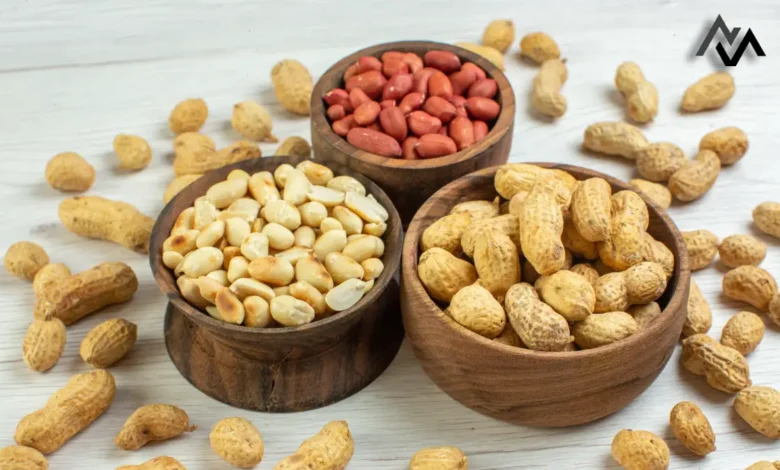
When it comes to choosing nutritious snacks, both peanuts and almonds are frequently recommended. These two nuts are not only delicious but also packed with numerous health benefits. However, when it comes to protein content, many people wonder which one is superior. Let’s break down the differences between peanuts and almonds to understand which nut is the better choice for your protein needs.
Peanut Protein Content: A Rich Source for Muscle Building
Peanuts, often mistaken for a legume, are technically a type of bean. They are widely recognized for their rich protein content and are an excellent option for those looking to increase their protein intake. On average, a 28-gram serving of peanuts contains approximately 7 grams of protein, making them a popular choice for vegetarians, athletes, and fitness enthusiasts. Peanuts also provide a solid dose of healthy fats, including monounsaturated and polyunsaturated fats, which promote heart health.
The protein found in peanuts is considered a high-quality plant protein, which means it contains a variety of essential amino acids. This makes peanuts a great addition to meals for muscle repair and growth. Additionally, peanuts are packed with vitamins such as Vitamin E, folate, and niacin, which contribute to maintaining energy levels and supporting immune function.
Almond Protein Content: A Nutrient-Packed Powerhouse
Almonds, on the other hand, are known for their high nutritional value and have long been considered one of the healthiest nuts. A 28-gram serving of almonds contains about 6 grams of protein, slightly less than peanuts, but still a commendable amount. What makes almonds stand out is their remarkable nutrient profile, including high levels of Vitamin E, magnesium, and fiber. These nutrients support healthy skin, strong bones, and digestion.
The protein in almonds is also of high quality, providing a range of essential amino acids. Though it has a slightly lower protein content compared to peanuts, almonds are a great addition to a balanced diet, especially for those looking for a crunchy and satisfying snack that also provides healthy fats.
Nutritional Differences: Peanuts vs Almonds
Let’s compare the nutritional benefits of peanuts and almonds in a bit more detail:
- Protein: Peanuts take the lead with 7 grams per 28-gram serving, while almonds offer 6 grams.
- Healthy Fats: Both peanuts and almonds contain heart-healthy fats, but almonds are especially high in monounsaturated fats, which are beneficial for lowering bad cholesterol levels.
- Calories: Almonds are slightly higher in calories, with about 160 calories per serving compared to peanuts’ 140 calories.
Vitamins & Minerals: While both nuts provide a good range of vitamins and minerals, almonds are particularly rich in Vitamin E and magnesium, whereas peanuts are higher in folate and niacin.
Which One Should You Choose?
Both peanuts and almonds have their unique benefits. If you’re looking for a higher protein content to support muscle growth or recovery, peanuts may be the better option. However, if you want a more well-rounded nutrient profile, especially with additional benefits for skin health and digestion, almonds could be a better fit.
Ultimately, the choice between peanuts and almonds comes down to personal preference and nutritional needs. For a protein-packed snack, both options are excellent. Additionally, incorporating a variety of nuts into your diet can ensure you’re getting a broad range of nutrients to support your overall health.
Conclusion: The Verdict on Peanuts vs Almonds
Both peanuts and almonds offer a solid protein punch, but peanuts come out slightly ahead in terms of protein content per serving. Almonds, however, have the edge when it comes to overall nutritional value, including heart-healthy fats and antioxidants. Whether you opt for the protein powerhouse of peanuts or the nutrient-dense almonds, both make excellent additions to your daily diet.
Remember, moderation is key. Overeating nuts can lead to excess calorie intake, so it’s important to enjoy them in balanced amounts as part of a healthy diet.




